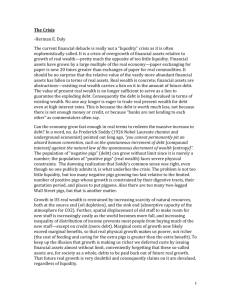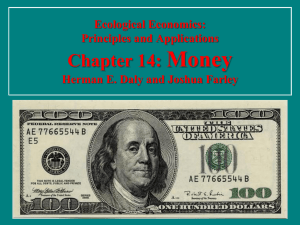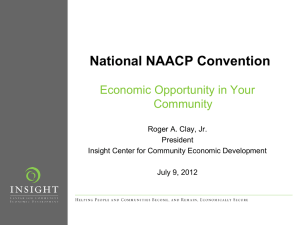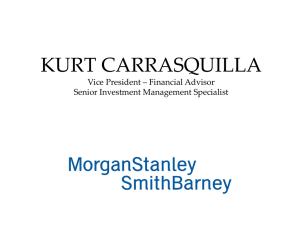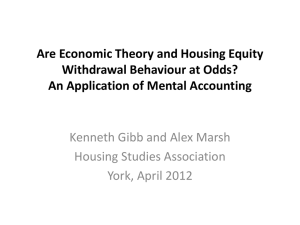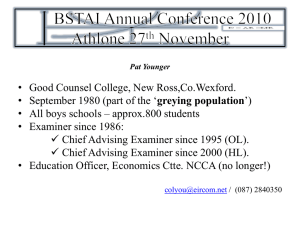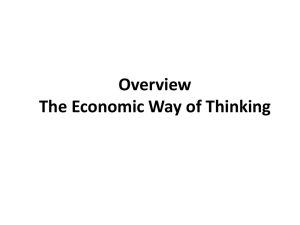Frederick Soddy
advertisement
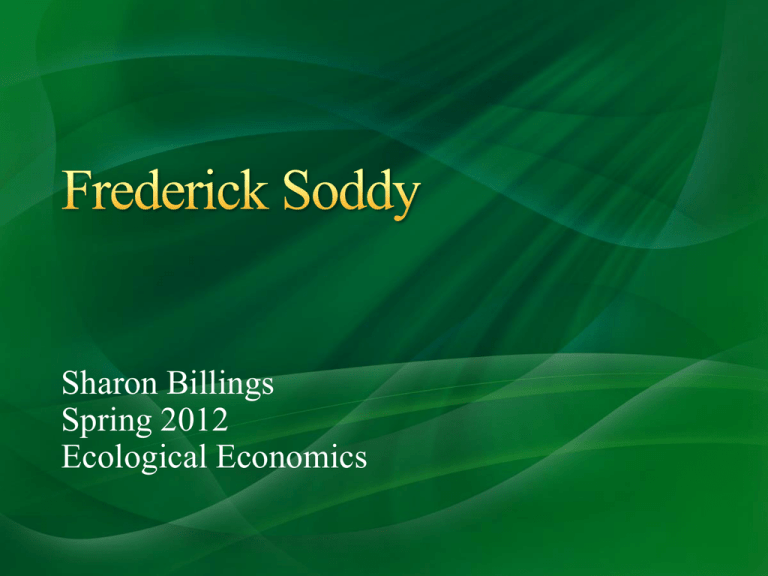
Sharon Billings Spring 2012 Ecological Economics 1877-1956 Chemistry Advances Coined “isotopes” radioactive disintegration Modern atomic theory and structure Nobel Peace prize 1910 Professor at McGill, Glasgow, Aberdeen, and Oxford After WW1, started looking at worlds problems Conclusions: Problem was not science, but scientists did have blame for contribution to society Economics = pseudoscience Faulty Unsafe with science advances Good and evil Must change economics Soddy decided to analyze and find solutions to the economy and it’s institutions Free of paradigm of economics when he started his analysis Contempt. Lots of Contempt. Review of Wealth, Virtual Wealth, and Debt Sad to see a respected chemist ruin his reputation by writing on a subject about which he was quite ignorant. (The Times Literary Supplement) The principles and ethics of human law and convention must not run counter to those of thermodynamics (Cartesian Economics) Soddy’s basis for critique of economics as a perpetual motion machine “how does man live? On sunshine” Sunshine = continuous flow of energy Not a stock source must obey the laws of thermodynamics Real Wealth Not material goods Matter and energy useful to humans 2 dimensions Physical: matter – energy Theological: usefulness subject to mind and will Wealth Physical, subject to physics Eventually will degrade Debt Imaginary quantity Subject to mathematics Endures forever Actually a lien against future sunshine because sunshine rates are constant and don’t grow at compound interest rates like debt Not a 1:1 ratio = compound interest will eventually create inflation and bankruptcy Ex nihilo: out of nothing wealth can’t be created this way, so money (debt) shouldn’t be either Main Problem: banks create money Becomes virtual wealth of community National debt is money Doesn’t obey laws of conservation Negative wealth quantity Money used to replace bartering and inconvenience Virtual wealth = utility cost of holding money Banks are counterfeiters Have made a mockery of measurement standards “ convert pounds of sterling to rubber yardsticks” Banks must have 100% reserves Could no longer create money Virtual wealth ownership restored to state Maintain a constant price-index Falls: government prints money, lowers taxes, redeems interest on national debt Deflation corrected by money-creating gov’t deficit Raises: government raises taxes and doesn’t spend revenue Inflation corrected by money-destroying gov’t surplus Freely fluctuating exchange rates internationally World payment maintained in equilibrium Purchasing powers among currencies Eliminate inflation and deflation pressure between economies Free trade regulation, such as tariffs, would disappear Morals Let us have an end of the pretence that economics should not be concerned with morals. (Role of Money) Economics should have honest weights and measures under exchange Current system gives false accounting References Daly, H. E. 1980. The economic thought of Frederick Soddy. History of Political Economy. 12 (4): 469-488 Daly, H. E. & Farley, J. 2004. Ecological Economics: Principles and Applications. Washington: Island Press. Soddy, F. 1921. Money versus Man. England: Purnell and Sons. Soddy. F. 1933. Wealth, Virtual Wealth, And Debt. USA: E.P. Dutton & CO. Inc.

